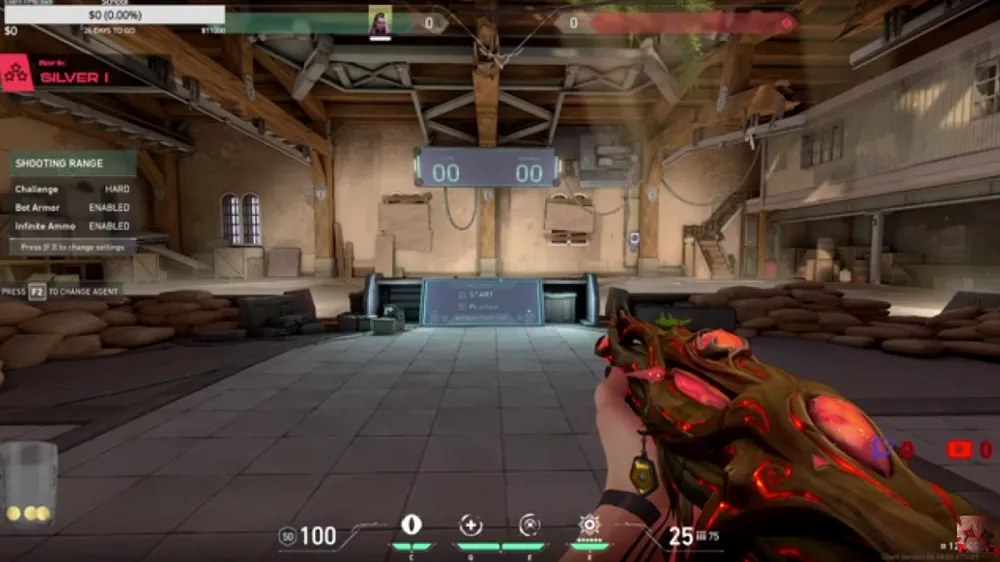Few things bring people closer than laughter around a game table. The phrase “Game Family Game” captures that magic moment when every family member, from toddlers to grandparents, shares a playful challenge. In a world buzzing with screens and notifications, games remain the simplest way to reconnect, unwind, and create memories that outlast any high score.
What Is a Game Family Game?
A family game is any game designed for people of all ages to enjoy together. It isn’t just about rules or competition—it’s about inclusion. These games are easy to learn, quick to play, and encourage participation rather than elimination. Think of classics like UNO, Ludo, Pictionary, and Scrabble. You don’t need special skills or training, just curiosity and a willingness to play.
A “game family game” focuses on creating experiences where laughter outweighs winning. It’s about the way a five-year-old and a fifty-year-old can share the same excitement when rolling dice or solving puzzles.
Key traits of great family games include:
- Simplicity: Easy rules that anyone can grasp within minutes.
- Replayability: Fun enough to play over and over without getting dull.
- Inclusivity: Everyone can participate regardless of age or ability.
- Balanced competition: Enough challenge to keep it interesting, but not frustrating.
These features transform a simple pastime into a bonding ritual.
Why Playing Family Games Matters
Building Bonds and Memories
Every family has moments that turn into treasured stories. Many start with a game night. Whether it’s Grandma winning Bingo or a sibling rivalry in Jenga, these shared experiences strengthen emotional ties. Psychologists note that cooperative play boosts empathy and understanding. Families that play together communicate better, argue less, and develop stronger trust.
Case Study:
A study from the University of Denver found that families who held weekly game nights reported 28% higher satisfaction in relationships compared to those who didn’t engage in shared leisure activities. That’s proof that laughter really is a social glue.
Enhancing Communication and Teamwork
Games teach collaboration in subtle ways. In cooperative board games like Pandemic or Forbidden Island, players must plan, share resources, and make decisions together. These activities mimic real-world teamwork, teaching patience and perspective. Even competitive games help children learn sportsmanship—how to lose gracefully and win humbly.
Reducing Screen Time
Modern families struggle to unplug. Family games offer a healthy alternative. Instead of watching shows in silence, everyone gets involved. Board or card games encourage conversation, imagination, and critical thinking—skills that screens rarely nurture.
Types of Family Games Everyone Will Love
Classic Board Games
Some games never lose their charm. Classics like Clue, Monopoly, and The Game of Life have survived generations because they’re relatable and endlessly replayable. They involve strategy, negotiation, and luck—three ingredients that keep players engaged.
Comparison Table:
| Game | Recommended Age | Players | Average Duration | Skill Type |
| Monopoly | 8+ | 2–6 | 60–120 min | Strategy & negotiation |
| Scrabble | 10+ | 2–4 | 45–90 min | Vocabulary & logic |
| Clue | 8+ | 3–6 | 45 min | Deduction |
| The Game of Life | 9+ | 2–6 | 60 min | Decision-making |
Each of these encourages thinking, interaction, and conversation—qualities every great family game should have.
Card Games for All Ages
Card games remain timeless because they’re simple, portable, and fast-paced. They also build math, memory, and logic skills without feeling like lessons.
Popular card games for families include:
- UNO: Colorful and energetic, perfect for quick matches.
- Skip-Bo: Focuses on sequencing and strategic moves.
- Phase 10: Encourages planning and patience.
- Exploding Kittens: A fun, unpredictable modern hit.
A single deck can spark hours of fun and teach valuable life lessons about patience, probability, and emotional control.
Outdoor and Active Family Games
When the weather’s fine, outdoor family games turn ordinary weekends into adventures. Games like Capture the Flag, Frisbee Golf, and Sack Races get everyone moving. These games improve coordination and teamwork while giving families a dose of fresh air and laughter.
Outdoor favorites for all ages:
- Cornhole: Great for BBQs and picnics.
- Tag variations: Freeze Tag, Shadow Tag, or Flashlight Tag for night play.
- Scavenger Hunt: Combines discovery and creativity—ideal for big groups.
Outdoor play doesn’t just strengthen muscles; it strengthens bonds.
Digital and Console Family Games
Contrary to old beliefs, not all screen time is bad. Some digital games bring families together in surprisingly positive ways.
Examples include:
- Mario Kart 8 Deluxe: Competitive yet hilarious for mixed ages.
- Overcooked 2: A frantic kitchen co-op game teaching teamwork under pressure.
- Just Dance: Encourages physical movement while keeping things lighthearted.
- Jackbox Party Pack: Ideal for group humor and creativity.
These games prove technology can unite rather than divide when used thoughtfully.
Choosing the Best Family Game for Your Group
Not every game suits every group. Choosing the right one depends on age, interests, and the type of fun you want—competition or cooperation.
Table: Best Family Games by Age Group
| Age Range | Ideal Game Type | Example Games |
| 4–8 years | Educational & Simple | Candy Land, Zingo, Connect 4 |
| 9–12 years | Strategy & Skill | Uno Attack, Jenga, Labyrinth |
| Teens | Interactive & Digital | Just Dance, Jackbox, Codenames |
| Adults & Mixed Ages | Cooperative & Trivia | Pictionary, Scattergories, Cranium |
When in doubt, choose games that promote interaction and laughter over complexity.
Fun Family Game Night Ideas
Themed Game Nights
Adding a theme can elevate your regular game night. It sets the mood and creates excitement before play even begins.
Examples:
- Retro Game Night: Play 80s favorites like Trivial Pursuit and Clue.
- Outdoor Adventure Night: Mix board games with garden challenges.
- Digital Challenge Night: Compete in Just Dance or Mario Party.
Decorate, dress up, and even prepare themed snacks to complete the experience.
DIY Family Games
You don’t always need store-bought boxes to have fun. Homemade games are budget-friendly and spark creativity.
Ideas include:
- Trivia Jar: Write fun questions on slips of paper.
- Guess the Sound Challenge: Record household noises and have players guess.
- Word Chain: A vocabulary race that needs nothing but imagination.
Creating your own game teaches children innovation and adaptability.
Reward Systems for Kids
Adding a small prize—like choosing the next game or earning a special treat—keeps children motivated. Rewards encourage positive competition and make participation consistent.
Top 10 Game Family Game Picks for 2025
The gaming world evolves fast. Here are 2025’s trending and family-approved games:
| Rank | Game | Type | Why It’s Great |
| 1 | Codenames | Word/Logic | Great for large families |
| 2 | Just Dance 2025 | Digital/Active | Keeps everyone moving |
| 3 | Taco Cat Goat Cheese Pizza | Card Game | Hilarious and fast-paced |
| 4 | Ticket to Ride | Strategy | Easy to learn yet deep |
| 5 | Spot It! | Reflex | Fun for all ages |
| 6 | Dixit | Creative Storytelling | Boosts imagination |
| 7 | Exploding Kittens | Card Game | Silly, quick, and addictive |
| 8 | Jackbox Party Pack 10 | Digital | Great for parties |
| 9 | Connect 4 Shots | Active | Combines action and logic |
| 10 | Wingspan | Strategy | Visually stunning and relaxing |
These titles continue to dominate both living rooms and online family streams.
For more reviews and ratings, explore:
- https://www.boardgamegeek.com/
- https://www.familygamemag.com/
The Science Behind Playing Games as a Family
Research shows that families who play together enjoy measurable psychological and emotional benefits. Games activate the brain’s dopamine pathways, promoting joy and reducing stress hormones. Cooperative games especially enhance social bonding through shared goals.
As family therapist Dr. Lisa Thompson puts it,
“Games aren’t just about fun—they’re structured moments where empathy, communication, and laughter coexist.”
Playing regularly fosters emotional intelligence in children and strengthens marital satisfaction among parents.
How to Keep Family Game Time Consistent
Setting a Regular Schedule
Make it official. Pick one night each week and stick to it. Consistency turns casual play into tradition. You’ll soon find everyone looking forward to “Game Night Friday.”
Handling Competitive Personalities
Healthy rivalry is fine, but remind players that the goal is joy, not dominance. Use cooperative games occasionally to balance competitive tension.
Tips for harmony:
- Rotate winners choosing the next game.
- Praise creativity and teamwork, not just victory.
- Encourage laughter even after losing.
Rotating Game Choices
Everyone deserves a say. Rotate who picks the next game to ensure fairness and variety. This approach keeps enthusiasm high and helps younger members feel involved.
Future of Family Gaming
The future looks bright for family entertainment. Augmented and virtual reality are reshaping how families play together. Imagine standing around the living room while a virtual dragon appears on your table—a reality that’s closer than you think.
Emerging trends include:
- AR-based board games: Combining tactile play with digital effects.
- Voice-controlled trivia games: Accessible for all ages.
- Hybrid experiences: Physical cards that sync with apps for interactive fun.
Yet, even with high-tech innovation, the essence remains unchanged—connection through play.
Final Thoughts — Let the “Game Family Game” Begin!
Family games aren’t about dice or cards—they’re about laughter echoing through the house. They remind us to unplug, slow down, and enjoy the people who matter most.
So dust off that board game, shuffle those cards, or pick up a console controller. The joy of playing together never grows old. Start your own “Game Family Game” tradition today and watch how the simple act of play brings extraordinary happiness to every corner of your home.











Leave a Reply